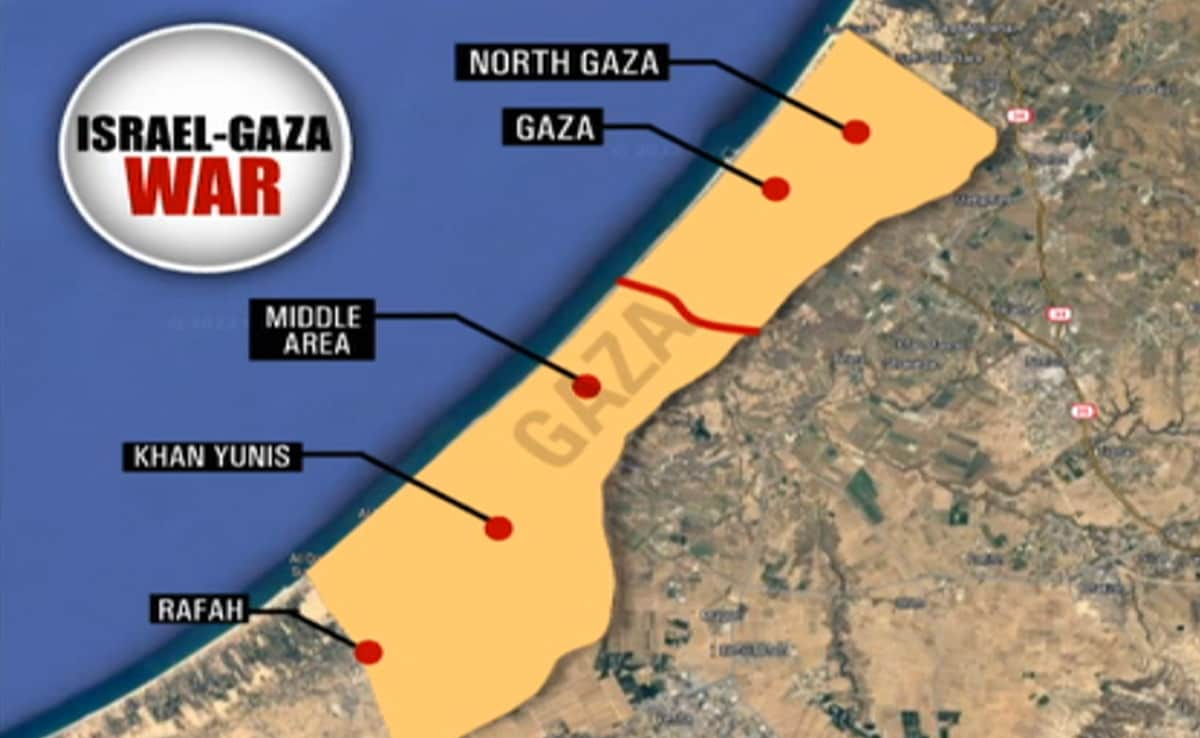Gaza has been under a debilitating Israeli blockade for over 15 years.
Hamas on Friday rejected an Israeli order to evacuate 1.1 million civilians south from northern Gaza within 24 hours, ahead of an expected ground incursion that will likely turn the overcrowded Palestinian territory into one of the world’s bloodiest war zones. “Our people reject the threat of the occupation (by Israeli) leaders and (the) call to flee to the south or Egypt,” the group said. “We are steadfast on our land and in our homes and our cities. There will be no displacement.”
However, the demand to move over a million people at short notice, during a war, has been criticised by the United Nations, which warned Israel of “devastating consequences”. “… impossible for such a movement to take place without devastating humanitarian consequences,” the UN said.
READ | Israel Asks Gaza City Civilians To Evacuate, UN Calls Order “Impossible”
The big (and very obvious) concern for aid agencies is – where? And how do you move 1.1 million men, women and children, as well as injured and infirm, while being bombarded by Israeli forces?
Israel has already indicated its willingness to inflict collateral damage, including killing civilians.
READ | “There Will Be Collateral Damage…”: Ex-Israel PM’s Warning To Hamas
The Gaza Strip
Gaza is 41 km long and between six and 12 km wide. It is divided into five areas – North Gaza, Gaza, the Middle Area, Khan Younis, and Rafah. The Strip has two land borders – Israel on its north and east, and Egypt on its south. Both are closed. To its west is the Mediterranean Sea, also closed.
Gazan airspace is controlled by Israel; their airport was destroyed by the Israelis in 2022.

It is, therefore, completely cut off from the world; the narrow 365 sq km patch of land, which is among the most densely populated on the world, relies (almost) entirely on Israel for food, fuel, medicines, drinking water and other essentials, and, to a lesser extent, on international aid agencies.
Israel’s Demand
Israel has demanded 1.1 million Gazans move from North Gaza to southern areas, potentially a 40 km journey in 24 hours, and as far down as Rafah and the border with Egypt.
There are two main entry/exit points on Gaza’s land border through which people are allowed – the Erez Crossing in the north that is controlled by Israel, and the Rafah Crossing controlled by Egypt.
Both have been closed to Gazans looking to flee the fighting. There is a third crossing – Kerem Shalom – which is controlled by Israel also but is normally only used to move goods.

The Gaza side of the Rafah Crossing was bombed even as civilians were looking to flee, raising questions over how serious Israel is about not deliberately targeting non-combatants.
Evacuation Options
There are none, for now.
Israel has already ruled out opening Gazan airspace or allowing aid agencies access via land or sea routes, and with the border crossings controlled by Israeli military, the Gazans are penned in.
READ | Israel Asks Gaza Residents To Flee War Against Hamas, Where’s The Exit?
One (perhaps the only) option are humanitarian corridors to allow civilians an escape route.
Israel has shown no indication it will permit this on its side, which leaves only Egypt. Cairo has so far rejected any move to set up such corridors, security sources in that country said Wednesday.
One of the sources, who asked not to be identified, said this was to “protect the right of Palestinians to hold on to their cause and their land”. Egypt has long restricted Gazans access to its territory.
The Israel – Hamas War
Israel’s expected ground attacks will follow a week of relentless aerial strikes, which have killed over 1,500 people so far, as Tel Aviv extracts revenge for Hamas killing more than 1,200 on October 7.
That those ground attacks are moving closer was reinforced this afternoon after an NDTV exclusive ground report showed tanks and armoured vehicles massing at the Gaza border.
READ | Ground Report: Israeli Tanks Roll Up To Border As Gazans Asked To Move South
These include Namer Infantry Fighting Vehicles, the most heavily armoured in the world, and Merkava IV tanks that have defence systems that can destroy incoming anti-tank missiles.
NDTV is now available on WhatsApp channels. Click on the link to get all the latest updates from NDTV on your chat.




